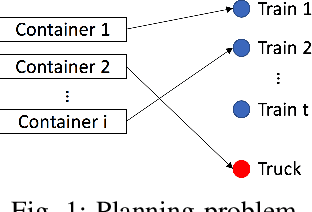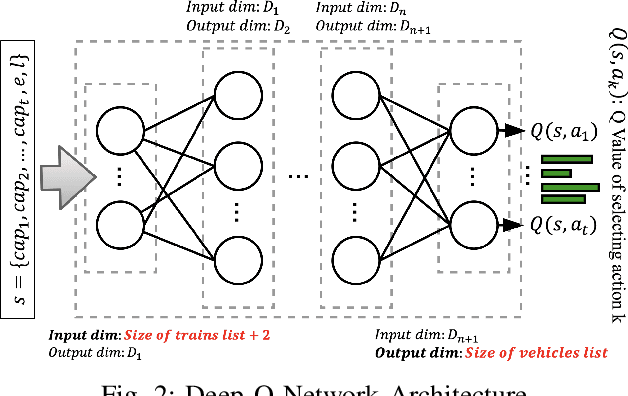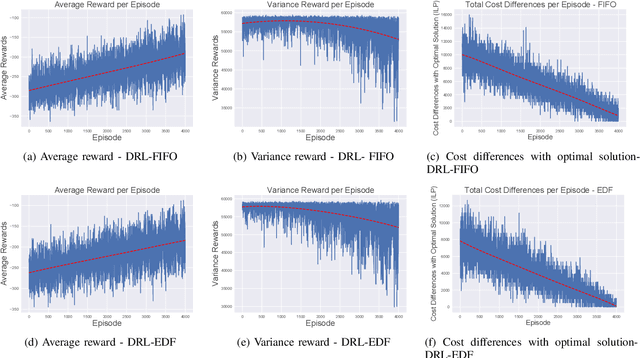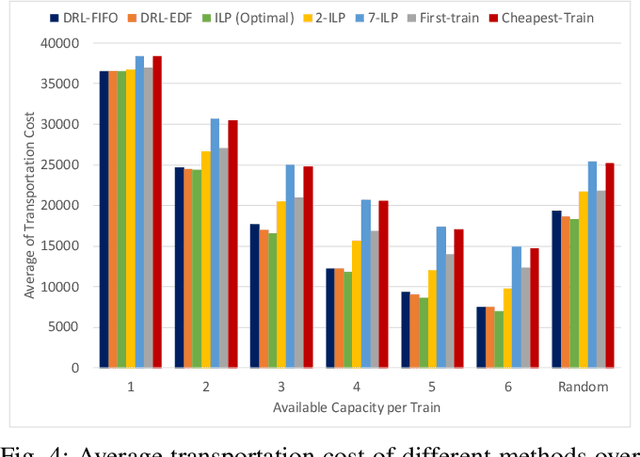Laura Genga
School of Industrial Engineering, Eindhoven University of Technology, Eindhoven, The Netherlands
Predictive Maintenance for Ultrafiltration Membranes Using Explainable Similarity-Based Prognostics
Jan 31, 2026Abstract:In reverse osmosis desalination, ultrafiltration (UF) membranes degrade due to fouling, leading to performance loss and costly downtime. Most plants rely on scheduled preventive maintenance, since existing predictive maintenance models, often based on opaque machine learning methods, lack interpretability and operator trust. This study proposes an explainable prognostic framework for UF membrane remaining useful life (RUL) estimation using fuzzy similarity reasoning. A physics-informed Health Index, derived from transmembrane pressure, flux, and resistance, captures degradation dynamics, which are then fuzzified via Gaussian membership functions. Using a similarity measure, the model identifies historical degradation trajectories resembling the current state and formulates RUL predictions as Takagi-Sugeno fuzzy rules. Each rule corresponds to a historical exemplar and contributes to a transparent, similarity-weighted RUL estimate. Tested on 12,528 operational cycles from an industrial-scale UF system, the framework achieved a mean absolute error of 4.50 cycles, while generating interpretable rule bases consistent with expert understanding.
Explainable Uncertainty Quantification for Wastewater Treatment Energy Prediction via Interval Type-2 Neuro-Fuzzy System
Jan 26, 2026Abstract:Wastewater treatment plants consume 1-3% of global electricity, making accurate energy forecasting critical for operational optimization and sustainability. While machine learning models provide point predictions, they lack explainable uncertainty quantification essential for risk-aware decision-making in safety-critical infrastructure. This study develops an Interval Type-2 Adaptive Neuro-Fuzzy Inference System (IT2-ANFIS) that generates interpretable prediction intervals through fuzzy rule structures. Unlike black-box probabilistic methods, the proposed framework decomposes uncertainty across three levels: feature-level, footprint of uncertainty identify which variables introduce ambiguity, rule-level analysis reveals confidence in local models, and instance-level intervals quantify overall prediction uncertainty. Validated on Melbourne Water's Eastern Treatment Plant dataset, IT2-ANFIS achieves comparable predictive performance to first order ANFIS with substantially reduced variance across training runs, while providing explainable uncertainty estimates that link prediction confidence directly to operational conditions and input variables.
Explainable Fuzzy GNNs for Leak Detection in Water Distribution Networks
Jan 06, 2026Abstract:Timely leak detection in water distribution networks is critical for conserving resources and maintaining operational efficiency. Although Graph Neural Networks (GNNs) excel at capturing spatial-temporal dependencies in sensor data, their black-box nature and the limited work on graph-based explainable models for water networks hinder practical adoption. We propose an explainable GNN framework that integrates mutual information to identify critical network regions and fuzzy logic to provide clear, rule-based explanations for node classification tasks. After benchmarking several GNN architectures, we selected the generalized graph convolution network (GENConv) for its superior performance and developed a fuzzy-enhanced variant that offers intuitive explanations for classified leak locations. Our fuzzy graph neural network (FGENConv) achieved Graph F1 scores of 0.889 for detection and 0.814 for localization, slightly below the crisp GENConv 0.938 and 0.858, respectively. Yet it compensates by providing spatially localized, fuzzy rule-based explanations. By striking the right balance between precision and explainability, the proposed fuzzy network could enable hydraulic engineers to validate predicted leak locations, conserve human resources, and optimize maintenance strategies. The code is available at github.com/pasqualedem/GNNLeakDetection.
Interactive Multi Interest Process Pattern Discovery
Aug 28, 2023Abstract:Process pattern discovery methods (PPDMs) aim at identifying patterns of interest to users. Existing PPDMs typically are unsupervised and focus on a single dimension of interest, such as discovering frequent patterns. We present an interactive multi interest driven framework for process pattern discovery aimed at identifying patterns that are optimal according to a multi-dimensional analysis goal. The proposed approach is iterative and interactive, thus taking experts knowledge into account during the discovery process. The paper focuses on a concrete analysis goal, i.e., deriving process patterns that affect the process outcome. We evaluate the approach on real world event logs in both interactive and fully automated settings. The approach extracted meaningful patterns validated by expert knowledge in the interactive setting. Patterns extracted in the automated settings consistently led to prediction performance comparable to or better than patterns derived considering single interest dimensions without requiring user defined thresholds.
Online Multimodal Transportation Planning using Deep Reinforcement Learning
May 18, 2021



Abstract:In this paper we propose a Deep Reinforcement Learning approach to solve a multimodal transportation planning problem, in which containers must be assigned to a truck or to trains that will transport them to their destination. While traditional planning methods work "offline" (i.e., they take decisions for a batch of containers before the transportation starts), the proposed approach is "online", in that it can take decisions for individual containers, while transportation is being executed. Planning transportation online helps to effectively respond to unforeseen events that may affect the original transportation plan, thus supporting companies in lowering transportation costs. We implemented different container selection heuristics within the proposed Deep Reinforcement Learning algorithm and we evaluated its performance for each heuristic using data that simulate a realistic scenario, designed on the basis of a real case study at a logistics company. The experimental results revealed that the proposed method was able to learn effective patterns of container assignment. It outperformed tested competitors in terms of total transportation costs and utilization of train capacity by 20.48% to 55.32% for the cost and by 7.51% to 20.54% for the capacity. Furthermore, it obtained results within 2.7% for the cost and 0.72% for the capacity of the optimal solution generated by an Integer Linear Programming solver in an offline setting.
Towards Multi-perspective conformance checking with fuzzy sets
Jan 29, 2020



Abstract:Conformance checking techniques are widely adopted to pinpoint possible discrepancies between process models and the execution of the process in reality. However, state of the art approaches adopt a crisp evaluation of deviations, with the result that small violations are considered at the same level of significant ones. This affects the quality of the provided diagnostics, especially when there exists some tolerance with respect to reasonably small violations, and hampers the flexibility of the process. In this work, we propose a novel approach which allows to represent actors' tolerance with respect to violations and to account for severity of deviations when assessing executions compliance. We argue that besides improving the quality of the provided diagnostics, allowing some tolerance in deviations assessment also enhances the flexibility of conformance checking techniques and, indirectly, paves the way for improving the resilience of the overall process management system.
 Add to Chrome
Add to Chrome Add to Firefox
Add to Firefox Add to Edge
Add to Edge